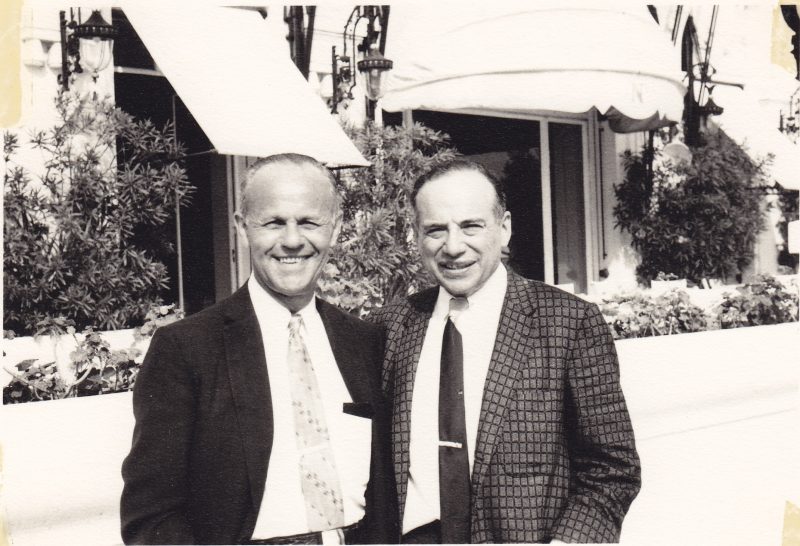Joshua Kennon is a Managing Director of
Kennon-Green & Co., a private asset management firm specializing in global value investing for affluent and high net worth individuals, families, and institutions. Nothing in this article or on this site, which is Mr. Kennon's personal blog, is intended to be, nor should it be construed as, investment advice, a recommendation, or an offer to buy or sell a security or securities. Investing can result in losses, sometimes significant losses. Prior to taking any action involving your finances or portfolio, you should consult with your own qualified professional advisor(s), such as an investment advisor, tax specialist, and/or attorney, who can help you consider your unique needs, circumstances, risk tolerance, and other relevant factors.
Having reached the end of the road in the third installment of the Final Fantasy XIII trilogy, requiring 150+ hours of game play over a four year period to climb the highest levels of power in creation and culminate in a conclusion to the series, I’m struck how the entire thing is really a well-done repackaging of Plato’s Euthyphro dilemma. In case it’s been awhile since you delved into the classics, the philosopher’s famous question posed in Greece more than 2,300 years ago can be summed up as (made singular since a majority of world religions are now monotheistic): Is something “good” because God says it is good, making it dependent upon His will or does God say something is “good” because it is inherently “right”, making goodness independent of His will?
Mental Model: Situational Knowledge Last night, I was talking with Aaron about the situational knowledge mental model and its implication for business innovation. For those of you who aren’t familiar with it, situational knowledge is a type of experience-based knowledge that arises either organically or through training, creating a database of relevant facts and implicit…
I’m taking it as a given that practically everyone who reads this site has already gone through Warren Buffett’s stockholder letter, which Berkshire Hathaway released today. Personally, I love how, for only the third or fourth time in his career, Buffett essentially provides enough mathematical evidence to say to people, “You’re a moron for not buying Berkshire Hathaway at these prices, but I’ll never come right out and say it.” He did it in sort of a clever way, too, to encourage people to run the figures.
The Wall Street Journal had a recent story detailing the trend of small investors jumping back into stocks, some trading options and futures. I’m old enough now, combined with twin quirks of being interested in finance at such a young age and having my lifespan line up with some interesting times in the capital markets, that I’ve watched this play out three times. At this point, you’d think it would lose its novelty but I still find my mouth dropping open and my head shaking in disbelief, mixed in with a bit of sadness. Reading what people are doing with their hard earned money – money that they exchanged for part of their life by selling time that could have been used traveling, reading, painting, or hanging out on the beach – doesn’t compute. If you took $5 out of their wallet, they’d throw a fit, but they’ll gamble $5,000 on something they barely understand.
Almost four years ago, I beat Final Fantasy XIII and blogged about it that evening. I never got around to playing the next game in the series, so over the past two weeks, I managed (mostly by fitting it in late at night) to put somewhere around 50 hours into Final Fantasy XIII-2. Now, I’m working on the final game in the trilogy.
It’s like people never learned anything from the Oklahoma Satanist case last year. Unintended consequences matter. Yet, it seems like people don’t build them into their behavioral models. If you open that door, you’re not the only one that gets to walk through. It’s so simple. It’s so basic, yet people forget it time and…
he Journal of Economic Perspectives: Vol. 27 No. 3 (Summer 2013) has a wonderful piece on the investment record of John Maynard Keynes, who managed to beat the market by an average of 8 percent per year from 1921 through 1946 by focusing on long-term, high quality dividend-paying stocks as well as smaller enterprises that had room to grow. When he died in his early sixties, Keynes had achieved the rank of one of the richest economists in history, amassing a fortune equal to $30,000,000 today.
On July 17th, 1981, one of the premier hotels in Kansas City suffered a catastrophic structural collapse that killed dozens of people and became a textbook case study for universities throughout the world. I still pass the building and am struck by how many people were wiped out, instantly, with only a few seconds’ notice…
I’m going through the corporate bond filings of pharmaceutical giant Eli Lilly just out of curiosity. They have a huge patent cliff coming up, during which time as much as 40% of their revenue base will be exposed to generic competition. I wondered what it would do to the risk metrics on the senior bonds so I pulled the Moody’s rating and reading over the figures as I listen to an old 1970s song called Snookeroo.
I spent a big percentage of my day reading indenture documents for corporate debt securities because I was helping someone pick up some additional fixed income investments for a retirement portfolio. I managed to get my hands on a nice block of high-grade, non-callable debentures from a major packaged foods company with a 4.3% yield-to-maturity on the remaining decade before maturity, but still have a bit of their dry powder left to spend.











